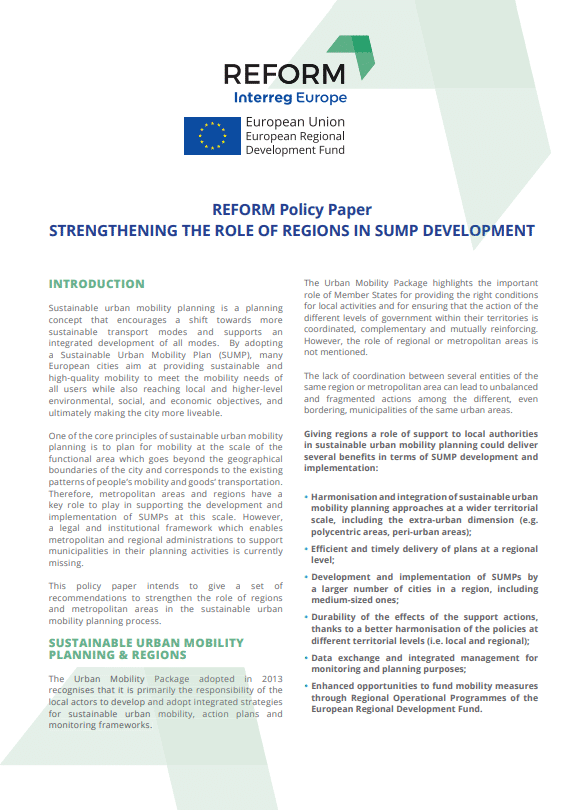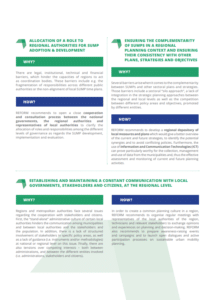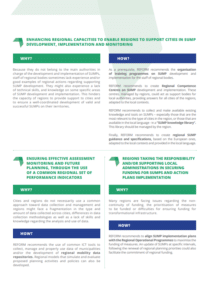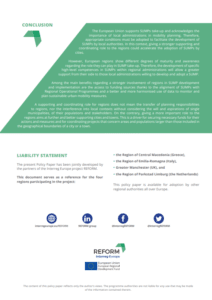How to strengthen the role of regions in SUMP development?
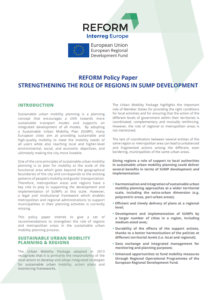 Sustainable urban mobility planning is a planning concept that encourages a shift towards more sustainable transport modes and supports an integrated development of all modes. By adopting a Sustainable Urban Mobility Plan (SUMP), many European cities aim at providing sustainable and high-quality mobility to meet the mobility needs of all users while also reaching local and higher-level environmental, social, and economic objectives, and ultimately making the city more liveable.
Sustainable urban mobility planning is a planning concept that encourages a shift towards more sustainable transport modes and supports an integrated development of all modes. By adopting a Sustainable Urban Mobility Plan (SUMP), many European cities aim at providing sustainable and high-quality mobility to meet the mobility needs of all users while also reaching local and higher-level environmental, social, and economic objectives, and ultimately making the city more liveable.
SUMP and regions: what is the link?
One of the core principles of sustainable urban mobility planning is to plan for mobility at the scale of the functional area which goes beyond the geographical boundaries of the city and corresponds to the existing
patterns of people’s mobility and goods’ transportation.
Therefore, metropolitan areas and regions have a key role to play in supporting the development and implementation of SUMPs at this scale. However, a legal and institutional framework which enables metropolitan and regional administrations to support municipalities in their planning activities is currently missing.
REFORM Policy Paper
In this context, the REFORM project produced a Policy Paper which gives a set of clear recommendations to strengthen the role of regions and metropolitan areas in the sustainable urban mobility planning process. Among others, REFORM recommends to: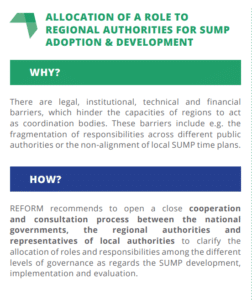
- Allocate a formal role to regional authorities;
- Ensure the complementarity of SUMPs and other strategies, at the regional level;
- Establish and maintain a constant communication between the regional and local authorities, and the different stakeholders and citizens;
- Enhance the capacities of regional bodies to support local SUMP development;
- Ensure assessment and monitoring by using regional indicators; and
- Use regional funding opportunities for SUMP development and implementation.
Context
REFORM supports the implementation and deployment of Sustainable Urban Mobility Plans (SUMPs) as an instrument for shifting mobility towards low-carbon patterns. In the framework of the REFORM project, through regional and interregional learning exchanges, REFORM will trigger the SUMP development process and amplify the SUMP adoption rate by local cities in four European regions:
- Central Macedonia (Greece)
- Emilia-Romagna (Italy)
- Parkstad Limburg (the Netherlands)
- Greater Manchester (United-Kingdom)
More information: https://www.interregeurope.eu/reform/
